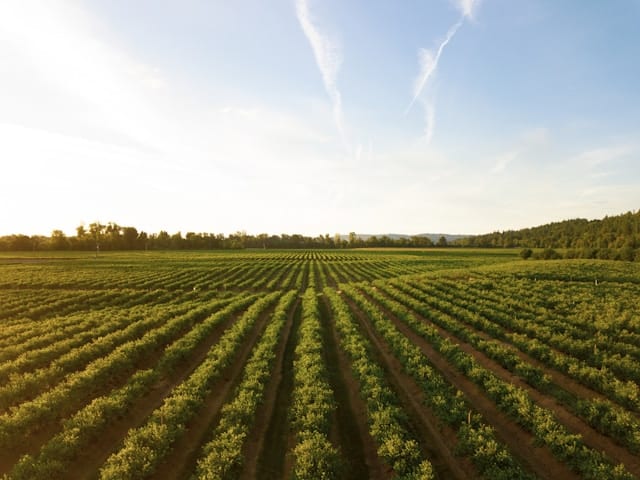What Are the Ethical Considerations of Gene Editing in Agriculture?

As you immerse yourself in this realm of scientific intrigue, you’ll find that the world of gene editing in agriculture stands at a fascinating intersection of science, ethics, and societal influence. The technology that allows us to edit the genes of plants and organisms, such as CRISPR, is becoming increasingly prevalent and potent. However, with such power, comes an array of ethical considerations that scholars, scientists, and the public must grapple with.
This technology’s potential applications, from altering food crops to combat climate change to breeding resistant organisms, are nearly limitless. Yet, as we venture into this brave new world, a question lingers – what are the ethical considerations of gene editing in agriculture?
Have you seen this : How to Implement Effective Telehealth Services in Rural UK Areas?
A New Era of Genetic Alteration
You have undoubtedly come across the term CRISPR while browsing scholarly articles on Google or Crossref. It stands for Clustered Regularly Interspaced Short Palindromic Repeats. This mouthful of technical jargon represents a powerful gene-editing technology that allows precise alterations in the genomes of organisms, including plants and humans.
Using CRISPR, scientists can remove, add, or modify sections of the DNA sequence, effectively editing the genes of an organism. This ability could revolutionize sectors from healthcare to agriculture. For instance, it could enable the breeding of crops that are more resistant to disease and harsh environmental conditions or the production of livestock with desirable traits.
In the same genre : How Can AI Help in Early Detection of Infectious Diseases in the UK?
However, the implications of this technology are far-reaching and potentially ethically charged. They demand a careful and all-encompassing examination.
The Ethical Landscape of Gene Editing
Scientists may seem like they hold the power to play God, but they are not without their ethical considerations. The question of whether it’s right to manipulate an organism’s genes, especially in the context of the food we consume, sparks a heated debate.
For some, the idea of meddling with nature raises concerns about the unknown consequences. The long-term impacts of genetically edited organisms on biodiversity, ecosystems, and human health are still largely unknown. Critics argue that we might unknowingly introduce new allergens into the food chain, create superweeds resistant to herbicides, or upset the balance of ecosystems.
In contrast, proponents argue that gene editing could help address pressing global issues such as food insecurity, climate change, and disease. They point out that traditional breeding methods have been manipulating plants’ genes for centuries, albeit more slowly and less precisely.
The ethical debate is further complicated by questions of who owns and controls this potent technology. The potential for misuse or abuse by corporations or authoritarian regimes is a genuine concern that needs addressing.
The Social Implications of Gene Editing
While the technical and ethical aspects of gene editing are crucial, it’s equally important to consider the social implications. How gene editing technology is communicated, understood, and accepted by the public can have profound influences on its future development and application.
Public mistrust and skepticism towards genetically modified (GM) foods highlight the importance of transparent, accurate, and accessible communication about gene editing. While GM technology and gene editing are distinct, they are often conflated in public discourse, making clear communication even more critical.
Social acceptance of gene-edited foods may also depend on how the benefits are distributed. If the benefits primarily go to large corporations while the risks are borne by consumers and small farmers, social resistance to this technology is likely to grow.
Looking Towards the Future of Gene Editing in Agriculture
It’s clear that the potential of gene editing technology is vast. It’s equally clear that the ethical questions it raises are complex and multifaceted. As we look towards the future, the way we navigate these questions will shape not only the development of this technology but also its impact on agriculture, society, and our planet.
Guidelines and regulations will need to keep pace with technological advances, ensuring that they safeguard against potential harms while enabling beneficial applications. These measures should be informed by a broad range of voices – scientists, ethicists, farmers, consumers, and more – to reflect diverse perspectives and interests.
While we may not have all the answers now, engaging in ongoing, open, and inclusive dialogue about the ethical considerations of gene editing in agriculture is critical. It will help us to navigate this exciting and challenging frontier in a way that respects both our shared ethical values and the promise of scientific innovation.
The Potential Benefits and Risks of Gene Editing
Gene editing technologies like CRISPR present a world of opportunities for agriculture. Imagine a future where crops are engineered to withstand harsh climatic conditions, livestock is tailored to yield more meat or milk, and plants are modified to resist devastating diseases. This could lead to a significant increase in food production and subsequently, a reduction in global hunger and malnutrition. Additionally, genome edited crops could help in the reduction of carbon emissions, thus contributing to the fight against climate change.
In the medical realm, gene editing could be utilized to create plants that produce therapeutic proteins, opening up possibilities for more affordable and accessible treatments. The potential benefits of gene editing, thus, seem vast and transformative.
However, alongside the optimistic possibilities, there are also potential risks and downsides. Critics often point to the potential ecological and health risks posed by gene edited products. For instance, altering a plant’s genome could unintentionally create new allergens or toxic compounds, posing risks to human health.
There is also the risk of gene drives, a technology that propagates a particular suite of genes throughout a population, potentially leading to the extinction of certain species or creating imbalances in ecosystems. Additionally, the ethics of editing human embryos and the human genome are contentious issues, provoking fierce debates about the limits of human intervention in nature.
Regulating Gene Editing Technologies
In order to maximize the benefits while mitigating the risks of gene editing, robust regulations need to be put in place. However, regulating these emerging technologies is no easy task. It requires a nuanced understanding of the science behind it, balancing the potential benefits against the potential risks, and integrating a wide range of ethical, societal and economic considerations.
One key issue is the lack of public understanding and trust in gene editing technologies. Some people equate gene editing with genetically modified (GM) organisms, which have been met with significant public resistance. Therefore, it is crucial to differentiate between these two in public discourse and emphasize that gene editing is more precise and controlled than traditional GM methods.
Another significant challenge is the potential for misuse of gene editing technologies. In the hands of unregulated entities or individuals with nefarious intentions, these tools could be used to create harmful biological agents or genetically enhanced humans, raising serious ethical issues.
To address these concerns, there must be stringent international laws governing the use of gene editing, with clearly outlined punishments for misuse. Regulations should also ensure that the benefits of gene editing technologies are accessible to everyone, not just a privileged few.
Conclusion: Navigating the Ethical Landscape of Gene Editing
The debate around the ethical considerations of gene editing in agriculture is a complex one, with no easy answers. As we move forward, it is vital to remember that while gene editing holds great promise, it also carries significant risks. Striking the right balance between these two will be one of the biggest challenges of our time.
There is a need for open, honest conversations involving a diverse range of stakeholders – from scientists to ethicists, farmers to consumers, policymakers to the general public – about the potential impacts of gene editing. Only by doing so can we ensure that the benefits are maximized and the risks minimized.
Furthermore, regulatory frameworks must be robust and flexible enough to adapt to the rapid pace of scientific advances. These should be developed with transparency and public participation to ensure they reflect societal values and expectations.
In conclusion, gene editing presents a potent tool that could transform agriculture and help address some of the world’s most pressing challenges. Yet, its ethical implications demand careful consideration and ongoing dialogue. The road ahead may be fraught with challenges, but with careful navigation and thoughtful decision-making, we can harness the power of gene editing for the benefit of all.
